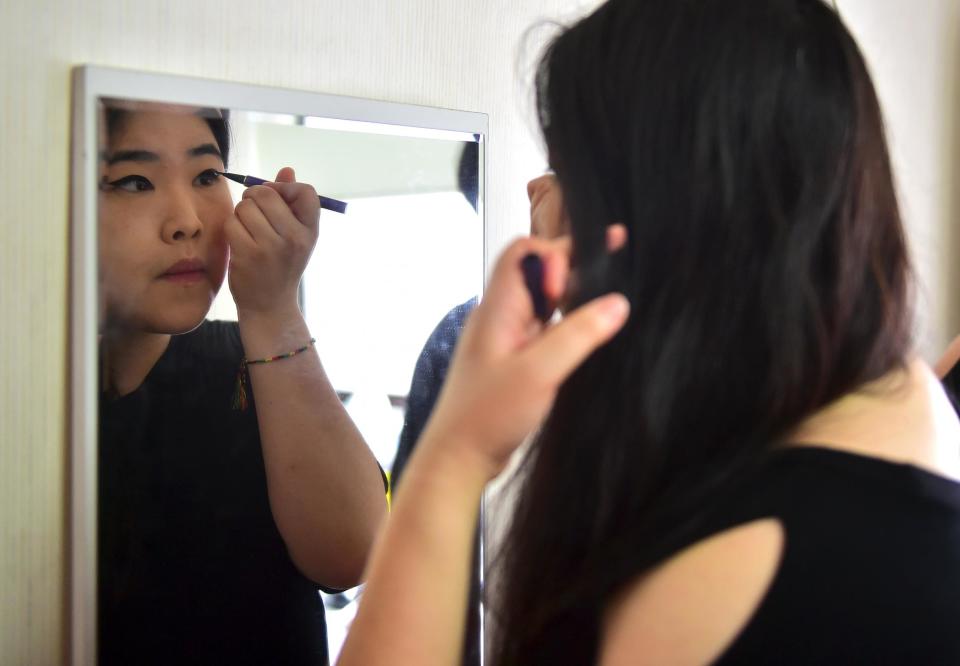South Korean women scrap make-up to fight beauty norms in 'resister' campaign

South Korean women are calling for an end to expected high beauty standards by publicly destroying their make-up and cutting their hair.
In a new movement, women across South Korea are rebelling against mainstream female images and denounced flawless feminine ideals, which they argue is driven by the country's deeply entrenched patriarchal society.
The latest trend, dubbed the 'remove the corset' movement, has seen scores of posts on social media.
Viral posts have swept across social media against expectations that beauty regimes and cosmetic surgery have become central to career progression and marriage.
The movement has seen a trend of high-profile feminists take part, following the growing popularity of the #MeToo campaign in the country.
Beauty YouTuber Lina Bae attracted five million views and 342,000 likes for her video "I am not pretty", where she applied false eyelashes and heavy make-up, before scrubbing her face and concluding "I am not pretty, but it is fine. You’re special the way you are.”
Comments on the video included: “Your bare face is a terror to my eyes, lol,” and “your skin isn’t good for women”.
One Instagram user also joined in the movement, sticking her middle finger up at lipstick and eyeliners, before asking: "Why did I smear these chemicals on my face?"
A post shared by 용연주 (@duswn2978) on Sep 28, 2018 at 9:58pm PDT
The $20-billion "K-Beauty" industry has been accused of focusing on pristine looks with pale, soft skin and delicate pink lips.
Multi-tasking while my hair dries. 💪 Leave a 💧 if you're masking this weekend! #youjelly
A post shared by Christine Chang (@christine_glow) on Oct 21, 2018 at 7:42am PDT
The so-called “K-beauty” industry, which promotes pale, soft skin and delicate pink lips, is one of the largest in the world, believed to be worth some $18-24 billion.
A female newsreader made headlines earlier this year for taking the decision to wear round-rimmed glasses on air, rather than contact lenses, prompting debate about unrealistic demands over appearance.
In recent months tens of thousands have also taken to the streets to demand action over a widespread alleged use of cameras being found in women's public toilets, leading to a team of 1,000 officers patrolling Seoul's public conveniences.
Lee Mi-jeong told the Telegraph: “There is a lot of pressure [on] young and middle-aged women to go to skin clinics to have wrinkle-free faces.
“But nowadays young people are starting to question why they have to care about what others think and they are starting to reject all of these pressures about appearance.
“This kind of new movement has been initiated by the younger generation. This is just the beginning and it will have an impact in the long run.”

 Yahoo News
Yahoo News 